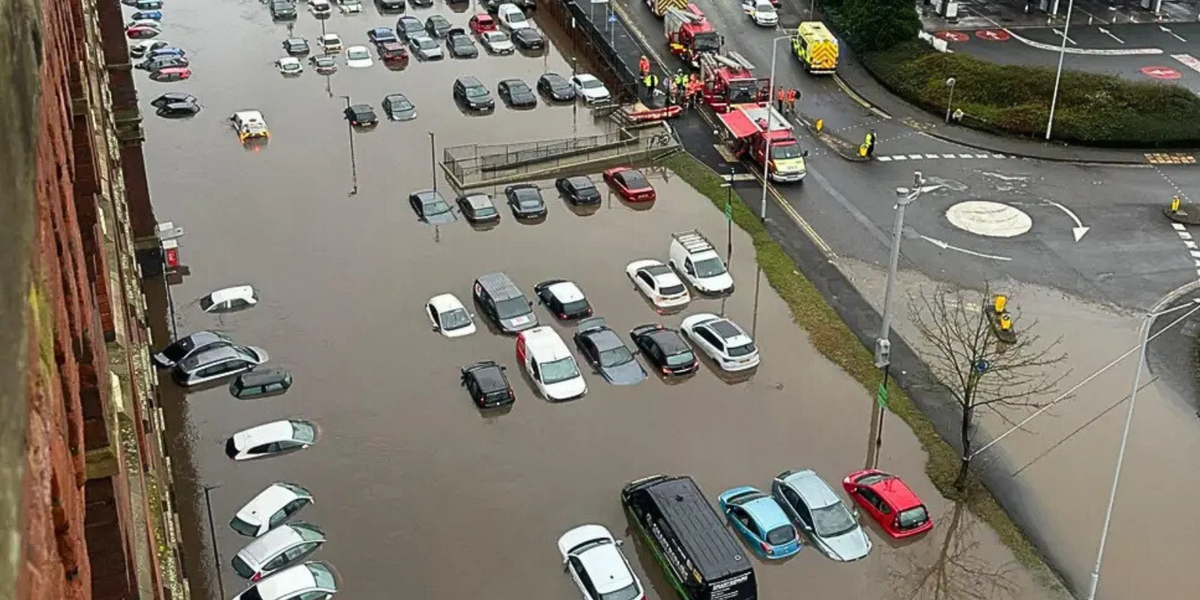Britain is set to be bankrupt in just 100 years’ time due to natural disasters, a new study has found.
New statistics show that the yearly growth of costs caused by catastrophes is 11.2 per cent.
Currently, the UK’s growth in GDP remains at 4.1 per cent but if climate change continues to bump up the intensity of weather-related phenomena, the cost of natural disasters will overtake what the government can afford by 2134.
According to experts at KISTERS, flooding will be the most expensive natural disaster for the UK to control – with the cost topping £33.9 billion in the next decade alone.
According to experts at KISTERS, flooding will be the most expensive natural disaster for the UK to control
Getty
The firm, which specialises in environmental monitoring and data management, said that between 2010 and 2019, flooding cost the UK around £6.3 billion in damages.
Johan Jacques, a senior meteorologist at KISTERS said: “With climate change escalating at an alarming rate, the findings of this study are deeply concerning but not entirely unexpected.
“We’re observing a dangerous trajectory where the cost of natural disasters, fueled largely by climate change, is outpacing economic growth significantly.
“The startling growth rate in natural disaster costs, particularly in developed nations like the UK, should be a wake-up call.
“Understanding that climate change is not just an environmental issue is crucial. It’s also an economic one.”
The report compares the cost of natural disasters vs GDP growth by country, aided with data by the International Disaster Database.
In total since 1990, there have been 12,449 natural disasters across the world, including droughts, floods, wildfires, storms and extreme temperatures.
The reports claims that, these disasters have cost the global economy more than £4.1 trillion in damages.
In total since 1990, there have been 12,449 natural disasters across the world, including droughts, floods, wildfires, storms and extreme temperatures
Getty
Jacques added: “One key takeaway from this study is the importance of investing in climate resilience and adaptation strategies.
“This is not just about reducing greenhouse gas emissions, which is undeniably crucial, but also about enhancing our infrastructure, building flood defences, and developing early warning systems.
“Such investments may seem substantial now, but they are insignificant compared to the potential costs of inaction.
“It’s also important to address the misconception that climate change will primarily affect developing nations.
“While they are indeed vulnerable, this study underscores that developed countries are not immune to the financial devastation that climate change can bring.”










